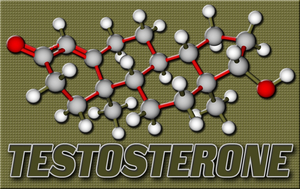Introduction to the Nervous System and Ejaculation
The intricate dance between the nervous system and the male reproductive system is pivotal in understanding the phenomenon of ejaculation. The process, which is both complex and highly regulated, involves a symphony of nerve signals that orchestrate the timing and intensity of ejaculation. This article delves into the neurological underpinnings of ejaculation, with a particular focus on premature ejaculation (PE), a common concern among American males.
The Role of the Nervous System in Ejaculation
Ejaculation is controlled by a delicate balance of the autonomic nervous system, which comprises the sympathetic and parasympathetic branches. The sympathetic nervous system, often associated with the 'fight or flight' response, plays a crucial role in the emission phase of ejaculation, where semen is expelled from the prostate and seminal vesicles into the urethra. Conversely, the parasympathetic nervous system, which is responsible for 'rest and digest' activities, facilitates the expulsion phase, propelling semen out of the body.
Neurological Pathways and Premature Ejaculation
Premature ejaculation, defined as ejaculation that occurs sooner than desired, either before or shortly after penetration, is believed to be influenced by an imbalance or hypersensitivity in these neurological pathways. Research suggests that men with PE may have a lower threshold for ejaculatory response, possibly due to heightened sensitivity of the penile nerves or altered central nervous system processing.
The Brain's Role in Ejaculation Control
The brain plays a central role in modulating ejaculation. The cerebral cortex, which is responsible for conscious control, can influence the timing of ejaculation through learned behaviors and psychological factors. The limbic system, particularly the amygdala and hypothalamus, also plays a significant role in the emotional and hormonal regulation of ejaculation. Dysregulation in these areas may contribute to the development of PE.
Neurotransmitters and Ejaculation
Neurotransmitters such as serotonin, dopamine, and norepinephrine are integral to the control of ejaculation. Serotonin, in particular, has been extensively studied in relation to PE. Higher levels of serotonin in the synaptic cleft are associated with delayed ejaculation, while lower levels may contribute to PE. This has led to the use of selective serotonin reuptake inhibitors (SSRIs) as a treatment for PE, as they increase serotonin availability.
Psychological Factors and the Nervous System
Psychological factors, including anxiety and stress, can exacerbate PE by affecting the nervous system's regulation of ejaculation. The anticipation of rapid ejaculation can create a feedback loop, where anxiety about performance leads to increased sympathetic nervous system activity, further hastening ejaculation.
Treatment Approaches Targeting the Nervous System
Treatment for PE often focuses on modulating the nervous system's response. Behavioral techniques, such as the stop-start method or the squeeze technique, aim to increase ejaculatory control by altering the neural pathways involved in ejaculation. Pharmacological interventions, like SSRIs or topical anesthetics, work by altering neurotransmitter levels or reducing penile sensitivity, respectively.
Conclusion: The Future of PE Research and Treatment
Understanding the role of the nervous system in ejaculation is crucial for developing effective treatments for PE. Ongoing research into the neurological basis of ejaculation continues to shed light on this complex process, offering hope for more targeted and effective interventions. For American males affected by PE, a comprehensive approach that considers both the neurological and psychological aspects of the condition is essential for managing and potentially overcoming this common sexual dysfunction.
In conclusion, the nervous system's influence on ejaculation is a testament to the body's intricate design. By unraveling these neurological pathways, we can better understand and address the challenges posed by premature ejaculation, improving the quality of life for many men.
Contact Us Today For A Free Consultation

- Mastering the Clock: Hormonal Influences on Ejaculatory Timing and Premature Ejaculation in American Males [Last Updated On: February 18th, 2025] [Originally Added On: February 18th, 2025]
- Understanding Premature Ejaculation: Facts, Myths, and Effective Treatments for American Men [Last Updated On: February 24th, 2025] [Originally Added On: February 24th, 2025]
- Decoding the Blink-and-Miss Syndrome: A Comprehensive Understanding of Premature Ejaculation [Last Updated On: February 25th, 2025] [Originally Added On: February 25th, 2025]
- Exploring the Enigma: Unraveling the Science Behind Premature Ejaculation [Last Updated On: February 26th, 2025] [Originally Added On: February 26th, 2025]
- Delineating Triggers: Understanding the Mechanisms Behind Premature Ejaculation [Last Updated On: February 27th, 2025] [Originally Added On: February 27th, 2025]
- Unplumbed Depths: The Psychological Underpinnings of Premature Ejaculation [Last Updated On: February 28th, 2025] [Originally Added On: February 28th, 2025]
- Mastering the Art of Endurance: Sustainable Strategies for Delayed Ejaculation [Last Updated On: February 28th, 2025] [Originally Added On: February 28th, 2025]
- Decoding the Dynamics: Understanding Premature Ejaculation Beyond Stereotypes [Last Updated On: March 1st, 2025] [Originally Added On: March 1st, 2025]
- The Incessant Walk in the Dark: Understanding Premature Ejaculation [Last Updated On: March 2nd, 2025] [Originally Added On: March 2nd, 2025]
- Exploring Premature Ejaculation: Causes, Impacts, and Management Strategies for Improved Sexual Health [Last Updated On: March 3rd, 2025] [Originally Added On: March 3rd, 2025]
- Unraveling the Mystery: A Comprehensive Look at Premature Ejaculation in American Men [Last Updated On: March 4th, 2025] [Originally Added On: March 4th, 2025]
- Understanding Premature Ejaculation: Impacts and Treatment Options [Last Updated On: March 4th, 2025] [Originally Added On: March 4th, 2025]
- Understanding and Managing Premature Ejaculation: Causes, Impacts, and Treatment Options [Last Updated On: March 5th, 2025] [Originally Added On: March 5th, 2025]
- Understanding and Managing Delayed Ejaculation: Causes and Behavioral Strategies [Last Updated On: March 6th, 2025] [Originally Added On: March 6th, 2025]
- The Psychological Impact of Performance Anxiety on Premature Ejaculation: Strategies for Management [Last Updated On: March 7th, 2025] [Originally Added On: March 7th, 2025]
- Comprehensive Guide to Understanding and Managing Premature Ejaculation: Causes, Diagnosis, and Treatment [Last Updated On: March 8th, 2025] [Originally Added On: March 8th, 2025]
- Natural Remedies for Premature Ejaculation: Techniques, Exercises, and Herbal Solutions Explored [Last Updated On: March 9th, 2025] [Originally Added On: March 9th, 2025]
- Exploring the Dual Impact of Erectile Dysfunction Medications on Premature Ejaculation: A Comprehensive Analysis [Last Updated On: March 12th, 2025] [Originally Added On: March 12th, 2025]
- Mastering the Art of Ejaculatory Control: Techniques for American Males [Last Updated On: March 13th, 2025] [Originally Added On: March 13th, 2025]
- Mindfulness Mastery: Enhancing Sexual Endurance and Overcoming Premature Ejaculation [Last Updated On: March 15th, 2025] [Originally Added On: March 15th, 2025]
- Managing Premature Ejaculation in Casual Dating: Strategies for American Males [Last Updated On: March 18th, 2025] [Originally Added On: March 18th, 2025]
- Anxiety's Role in Fueling Premature Ejaculation Among American Men: Causes and Treatments [Last Updated On: March 18th, 2025] [Originally Added On: March 18th, 2025]
- Lifestyle Changes to Manage Premature Ejaculation in American Males [Last Updated On: March 18th, 2025] [Originally Added On: March 18th, 2025]
- Managing Premature Ejaculation: Communication, Treatment, and Therapy for Couples [Last Updated On: March 18th, 2025] [Originally Added On: March 18th, 2025]
- Understanding and Treating Premature Ejaculation: A Comprehensive Guide [Last Updated On: March 19th, 2025] [Originally Added On: March 19th, 2025]
- Countdown Challenge: Enhancing Ejaculatory Control in American Males [Last Updated On: March 19th, 2025] [Originally Added On: March 19th, 2025]
- Premature Ejaculation's Social Impact on American Men: Relationships, Self-Esteem, and Stigma [Last Updated On: March 20th, 2025] [Originally Added On: March 20th, 2025]
- Mastering Premature Ejaculation: Effective Techniques and the Power of Pause [Last Updated On: March 21st, 2025] [Originally Added On: March 21st, 2025]
- Psychological Strategies for Managing Premature Ejaculation in American Men [Last Updated On: March 21st, 2025] [Originally Added On: March 21st, 2025]
- Overcoming Premature Ejaculation: Holistic Strategies for Enhanced Intimacy and Control [Last Updated On: March 21st, 2025] [Originally Added On: March 21st, 2025]
- Premature Ejaculation: Emotional, Financial Impacts and Treatment Options for American Men [Last Updated On: March 21st, 2025] [Originally Added On: March 21st, 2025]
- Understanding and Managing Premature Ejaculation: Causes, Treatments, and Lifestyle Tips [Last Updated On: March 22nd, 2025] [Originally Added On: March 22nd, 2025]
- Mastering Premature Ejaculation: Comprehensive Strategies for American Males [Last Updated On: March 22nd, 2025] [Originally Added On: March 22nd, 2025]
- Innovative Strategies to Delay Ejaculation: Advances in Premature Ejaculation Research [Last Updated On: March 22nd, 2025] [Originally Added On: March 22nd, 2025]
- Dietary Strategies to Manage Premature Ejaculation: Key Foods and Practical Tips [Last Updated On: March 22nd, 2025] [Originally Added On: March 22nd, 2025]
- Managing Premature Ejaculation: Psychological, Pharmacological, and Behavioral Approaches [Last Updated On: March 22nd, 2025] [Originally Added On: March 22nd, 2025]
- Premature Ejaculation: Understanding, Treating, and Overcoming the Common Sexual Dysfunction [Last Updated On: March 23rd, 2025] [Originally Added On: March 23rd, 2025]
- Understanding Sexual Arousal and Managing Premature Ejaculation in American Men [Last Updated On: March 24th, 2025] [Originally Added On: March 24th, 2025]
- Exercise and Premature Ejaculation: Enhancing Sexual Health Through Physical Fitness [Last Updated On: March 24th, 2025] [Originally Added On: March 24th, 2025]
- Stress Reduction Strategies for Managing Premature Ejaculation in American Men [Last Updated On: March 24th, 2025] [Originally Added On: March 24th, 2025]
- Ejaculatory Control: Understanding and Managing Premature Ejaculation in American Men [Last Updated On: March 24th, 2025] [Originally Added On: March 24th, 2025]
- Restorative Sleep Enhances Sexual Stamina, Mitigates Premature Ejaculation in American Males [Last Updated On: March 24th, 2025] [Originally Added On: March 24th, 2025]
- Managing Premature Ejaculation Through Open Communication and Mutual Support [Last Updated On: March 24th, 2025] [Originally Added On: March 24th, 2025]
- Medications Impacting Ejaculatory Speed: Insights into PE Treatment Options [Last Updated On: March 24th, 2025] [Originally Added On: March 24th, 2025]
- Managing Premature Ejaculation: Innovative Digital Tools for American Men [Last Updated On: March 24th, 2025] [Originally Added On: March 24th, 2025]
- Managing Premature Ejaculation: Techniques and Holistic Approaches for American Men [Last Updated On: March 25th, 2025] [Originally Added On: March 25th, 2025]
- Managing Premature Ejaculation: Self-Help Resources and Techniques for American Men [Last Updated On: March 25th, 2025] [Originally Added On: March 25th, 2025]
- Managing Premature Ejaculation: Strategies for Men Across All Ages [Last Updated On: March 25th, 2025] [Originally Added On: March 25th, 2025]
- Managing Premature Ejaculation: One Man's Journey to Sexual Health and Confidence [Last Updated On: March 25th, 2025] [Originally Added On: March 25th, 2025]
- Mastering Foreplay to Manage Premature Ejaculation: Techniques and Strategies [Last Updated On: March 25th, 2025] [Originally Added On: March 25th, 2025]
- Behavioral Techniques for Managing Premature Ejaculation in American Men [Last Updated On: March 25th, 2025] [Originally Added On: March 25th, 2025]
- Overcoming Premature Ejaculation: Real-Life Success Stories and Effective Strategies [Last Updated On: March 25th, 2025] [Originally Added On: March 25th, 2025]
- Premature Ejaculation: Global Insights, Treatment Options, and Reducing Stigma in the U.S. [Last Updated On: March 25th, 2025] [Originally Added On: March 25th, 2025]
- Managing Premature Ejaculation: A Holistic Approach for American Males [Last Updated On: March 26th, 2025] [Originally Added On: March 26th, 2025]
- Understanding and Overcoming Premature Ejaculation: Breaking the Stigma [Last Updated On: March 26th, 2025] [Originally Added On: March 26th, 2025]
- Transforming Premature Ejaculation into Enhanced Intimacy and Emotional Connection [Last Updated On: March 26th, 2025] [Originally Added On: March 26th, 2025]
- Managing Premature Ejaculation: Psychological, Biological, and Strategic Approaches for American Men [Last Updated On: March 26th, 2025] [Originally Added On: March 26th, 2025]
- Understanding and Treating Premature Ejaculation: Biological and Psychological Approaches [Last Updated On: March 26th, 2025] [Originally Added On: March 26th, 2025]
- Biofeedback: A Non-Invasive Solution for Premature Ejaculation in American Men [Last Updated On: March 26th, 2025] [Originally Added On: March 26th, 2025]
- Managing Premature Ejaculation: Holistic Approaches Beyond Medication [Last Updated On: March 26th, 2025] [Originally Added On: March 26th, 2025]
- Herbal Remedies for Premature Ejaculation: Efficacy and Safety for American Men [Last Updated On: March 26th, 2025] [Originally Added On: March 26th, 2025]
- Enhancing Sexual Endurance: Techniques and Patience for Overcoming Premature Ejaculation [Last Updated On: March 26th, 2025] [Originally Added On: March 26th, 2025]
- CBT: A Holistic Approach to Managing Premature Ejaculation in American Males [Last Updated On: March 27th, 2025] [Originally Added On: March 27th, 2025]
- Understanding and Managing Premature Ejaculation in American Men: Causes and Strategies [Last Updated On: March 28th, 2025] [Originally Added On: March 28th, 2025]
- Effective Strategies to Combat Premature Ejaculation and Boost Sexual Stamina [Last Updated On: March 28th, 2025] [Originally Added On: March 28th, 2025]
- Couples Overcoming Premature Ejaculation: Strategies and Support for Enhanced Intimacy [Last Updated On: March 29th, 2025] [Originally Added On: March 29th, 2025]
- Exploring the Interplay of ED and PE in American Men: Impacts and Treatments [Last Updated On: March 29th, 2025] [Originally Added On: March 29th, 2025]
- Managing Premature Ejaculation: Holistic Strategies for American Men's Sexual Health [Last Updated On: March 29th, 2025] [Originally Added On: March 29th, 2025]
- Managing Premature Ejaculation: Techniques, Therapies, and Lifestyle Changes for American Men [Last Updated On: March 29th, 2025] [Originally Added On: March 29th, 2025]
- Premature Ejaculation: Causes, Diagnosis, and Effective Management Strategies [Last Updated On: March 30th, 2025] [Originally Added On: March 30th, 2025]
- Managing Premature Ejaculation: Treatments and Strategies for American Men [Last Updated On: March 30th, 2025] [Originally Added On: March 30th, 2025]
- New Treatments for Premature Ejaculation: Options for American Males [Last Updated On: April 2nd, 2025] [Originally Added On: April 2nd, 2025]
- Controlled Breathing: A Natural Solution for Premature Ejaculation in American Men [Last Updated On: April 4th, 2025] [Originally Added On: April 4th, 2025]
- Overcoming Premature Ejaculation: American Men's Journey to Sexual Health and Confidence [Last Updated On: April 4th, 2025] [Originally Added On: April 4th, 2025]
- Testosterone's Role in Ejaculatory Control and Premature Ejaculation in American Males [Last Updated On: April 6th, 2025] [Originally Added On: April 6th, 2025]
- Exploring Premature Ejaculation's Link to Prostate Health: Insights and Management [Last Updated On: April 6th, 2025] [Originally Added On: April 6th, 2025]
- Understanding and Managing Premature Ejaculation: Causes, Treatments, and Holistic Approaches [Last Updated On: April 7th, 2025] [Originally Added On: April 7th, 2025]
- Mastering Premature Ejaculation: Integrating Art, Science, and Therapy for American Men [Last Updated On: April 9th, 2025] [Originally Added On: April 9th, 2025]
- Strategies to Overcome Premature Ejaculation: A Holistic Approach for American Men [Last Updated On: April 9th, 2025] [Originally Added On: April 9th, 2025]
- Mastering Ejaculation Control: Techniques and Strategies for American Men [Last Updated On: April 9th, 2025] [Originally Added On: April 9th, 2025]
Word Count: 586





















